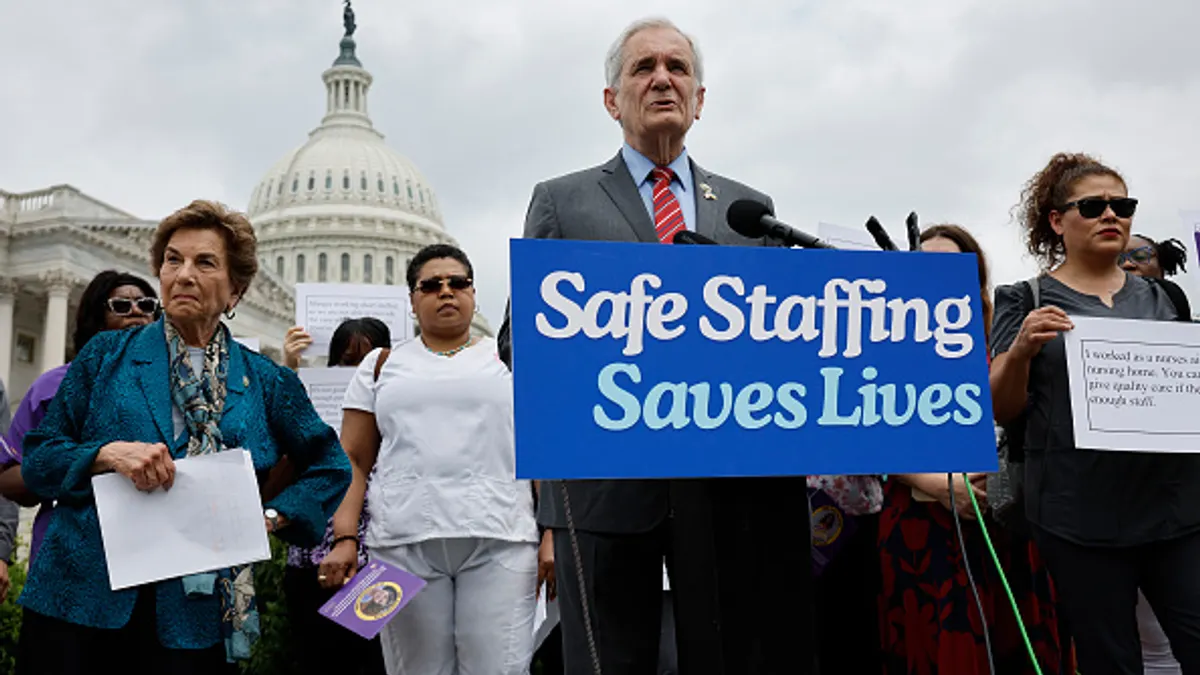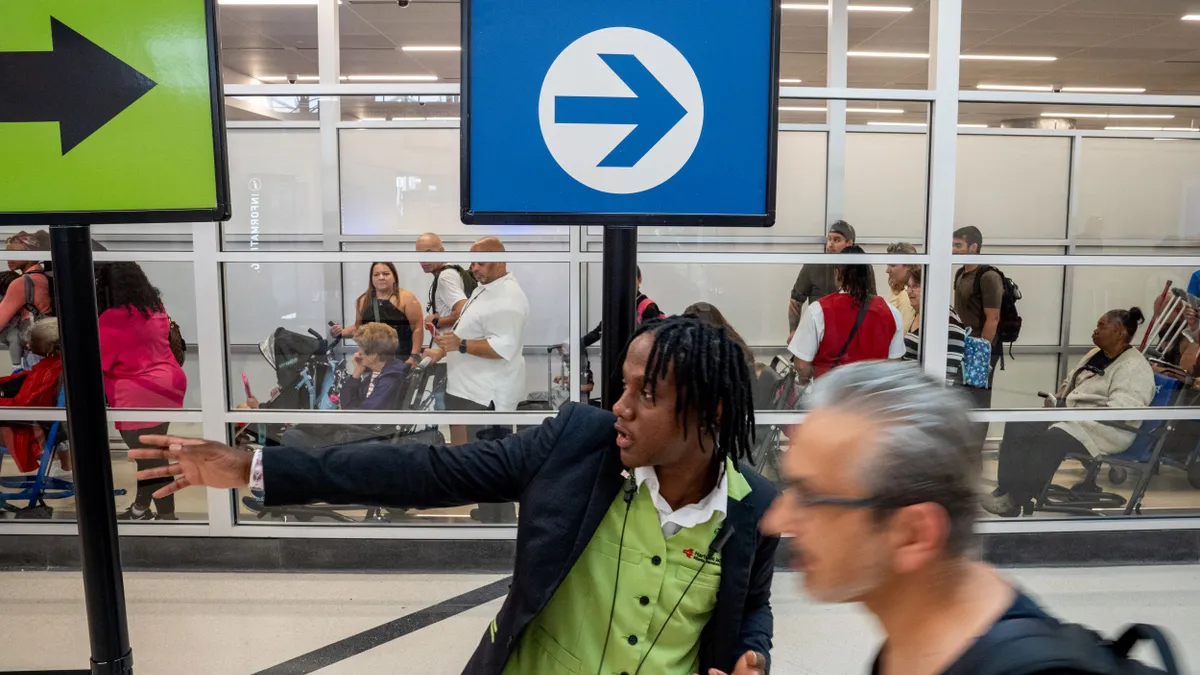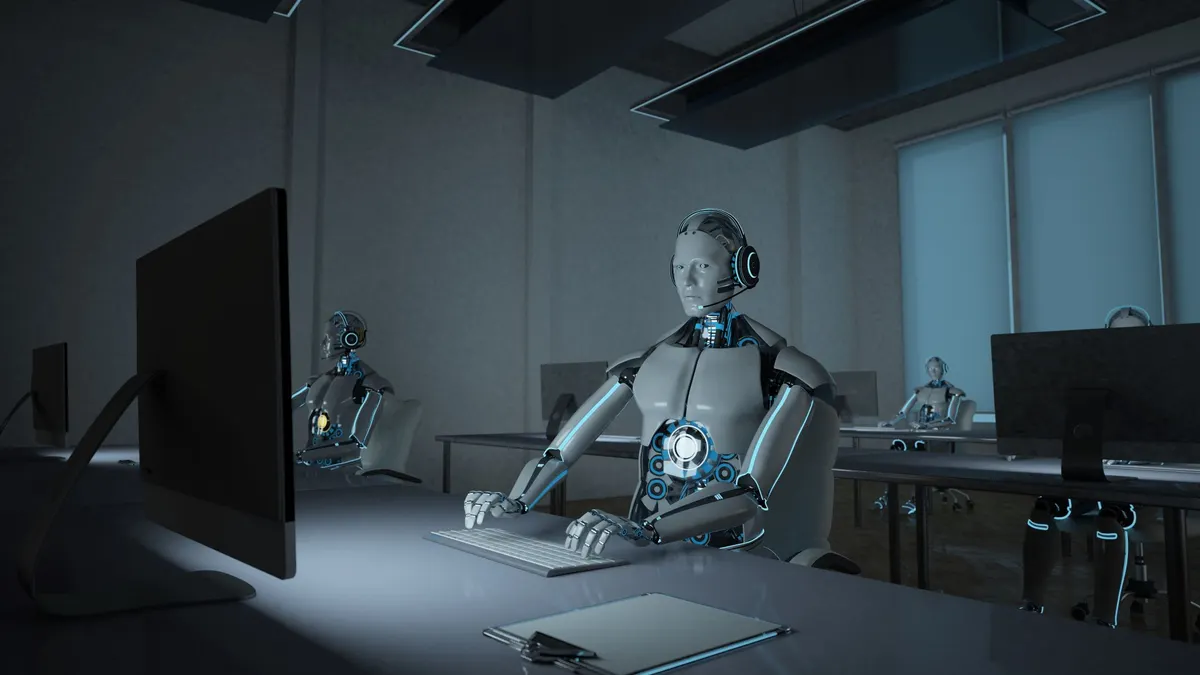LAS VEGAS — Starbucks has been a leader in its sector in offering hourly employees competitive benefits, ranging from 100% covered tuition for a college education to emergency back-up child and elder care.
Those decisions were all part of a broader Starbucks mission to put people first, Howard Behar, former president of Starbucks, told listeners at the Society for Human Resource Management annual conference. During a session at the conference, he described how his personal leadership philosophy helped the company grow into one of the most recognizable brands today.
It's okay to be empathetic
A higher up who suggested Behar take an executive position told him that leaders keep their emotions close to the chest and their opinions to themselves. But that advice didn't jive with how Behar had led people his whole career: "Why did they promote me?" he asked. Very quickly after following this advice, he said, he went from a man who loved his work to hating his job. He didn't want to do the work he had been promoted to do. He felt bad enough that he wrote a resignation letter.
That day, a friend at the company invited him out to coffee and asked: What happened? Behar had previously been on the fast track to leadership. When Behar explained, his friend told him he couldn't take what his superior had said seriously; he was from an autocratic culture — a different generation of work.
In other words: Behar's friend pointed out he was free to lead as he saw fit.
"The minute I got in there, I said 'It's not about coffee, it's about people,'" Behar said about his work at Starbucks. "We're in the people business. Do we sell coffee? Yes, we do. But that isn't what we're about."
Behar challenged HR to change the language of their company leadership — to move away from speaking only of the bottom line and instead toward focusing on people.
"Words matter," he said. "Our motto was about nurturing the human spirit, not about how much coffee we were going to sell." Companies have to live their values through the way they choose to communicate and the actions they undertake, he said.
Let the workforce participate
Behar spoke emphatically of letting every employee participate in building the workplace, from the bottom up. "The person who sweeps the floor should choose the broom," he said. Those nearest the work tend to know best how to innovate on it.
He told the crowd a story about a direct report who had a great idea for the organization based on what she saw competitors doing nearby. He gave the employee room to test the idea on a small scale and then fought for the idea at a higher level when he saw how successful it was. The idea she brought forward eventually became the frappuccino, which makes billions for the company per year today, Behar said.
"The people that you hire are going to change your organization," he said. That is, after all, why an organization hires anyone at all, he added.
Owning failures
No company, however, is perfect. In April 2018, a racial profiling incident at a Philadelphia Starbucks threatened the reputation the company had built and created a leadership crisis. Two black men were arrested after a store manager called the police on them, ostensibly for trespassing.
"Everything we built fell apart in two minutes," Behar said. Starbucks execs flew in to meet with city leadership as well as the wronged men. Howard Schulz, the longtime CEO, even put off his retirement, Behar said. The leaders "had to own it." Then came the historic decision to close every Starbucks store for a half-day of bias training.
"We're not naive," Behar said; one day of diversity training wouldn't change everything. The bigger issue was that "we couldn't live like that," he added. One person in one store sent shockwaves throughout every store and broke trust built over decades in a single instant — all thanks to one poor judgment call that went against the values of the organization.
Behar said he could almost pinpoint where values-based problems arise in the organization: districts that have vice presidents more focused on profit than people.
"You can't change what is in people's hearts. You have to change their behaviors in a way that makes them understand why that doesn't work at Starbucks," he said. "How does that action nurture the human spirit?"
For Behar, everything goes back to the people.
"Leadership has one responsibility: to grow the people," he said. "Have the people live out the values of the organization. And then the company will grow."






















